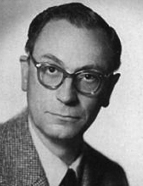

In 1932, also in Cahiers du Sud , Hourcade wrote a Lettre Portugaise [Portuguese Letter]: a brief and vibrant tribute to Portugal in which he emphasises that the country not only conquered half the world but also methodically prepared its discoveries, increasing knowledge of astronomy, geography, and nautical architecture, and at the same time inaugurating what would become modern economy, the science of the new times, and giving incipient Europe a true image of an Empire which imposed its mark— names, linguistic elements— on unknown continents, like Africa, America, and Asia.
The Bulletin des Études Portugaises [Bulletin of Portuguese Studies] was created in 1931 in partnership with the University of Coimbra. This publication included two articles by Hourcade in its first issue: Panorama du modernisme littéraire en Portugal [Panorama of literary modernism in Portugal] and La seconde génération de Coimbra et la revue [The second generation from Coimbra and the review]. He began his frequent collaboration with chronicles and reviews in A Folha [The Sheet] (1868-1873). Hourcade's stay in Coimbra also allowed him to write a short and beautiful essay— L'esprit de Coimbra [The Coimbra Spirit], published in 1937 in that same city— in which he celebrates the university's centuries-old ongoing history.
From 1936 onwards, the political climate in Portugal was characterised by Salazar's support of the Falangists as soon as the Spanish Civil War broke out, and above all by Portuguese neutrality declared in 1939 in relation to the conflict between France and Germany, which triggered World War II. The situation of the French diplomatic corps was not easy, especially as the celebrations of the 1940 Congress of the Portuguese World, inaugurated on 23 June— the day after the Armistice and five days after the Appel du 18 juin by De Gaulle— resulted in messages from various French organisations, which prudently avoided meddling with Portuguese political news.
This work is financed by national funds through FCT - Foundation for Science and Technology, I.P, in the scope of the projects UIDB/04311/2020 and UIDP/04311/2020.
